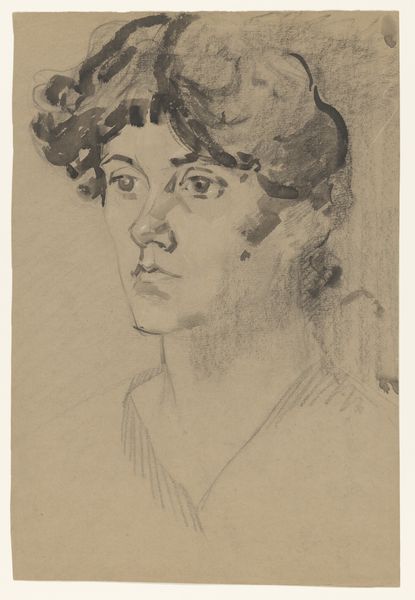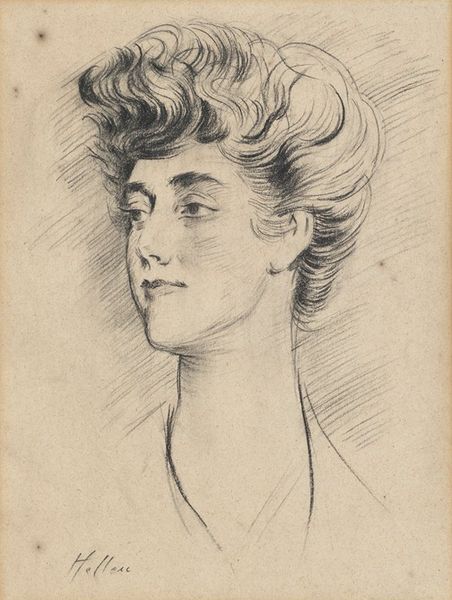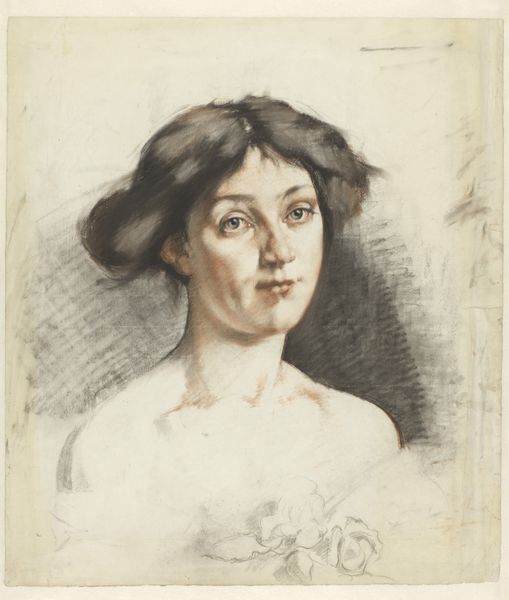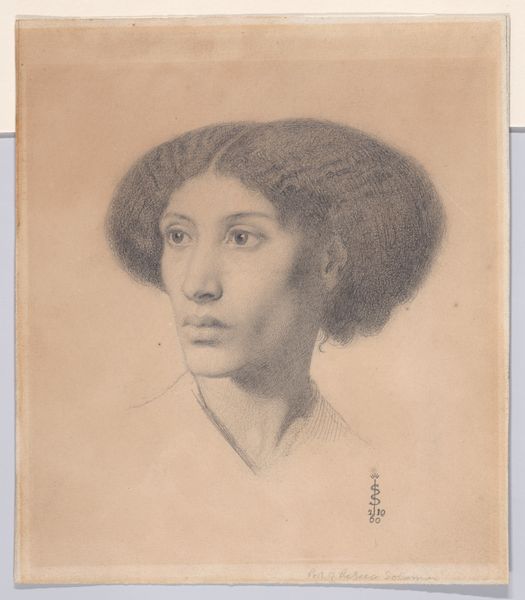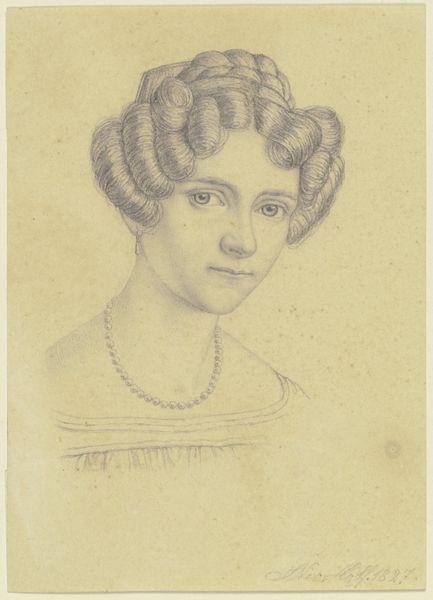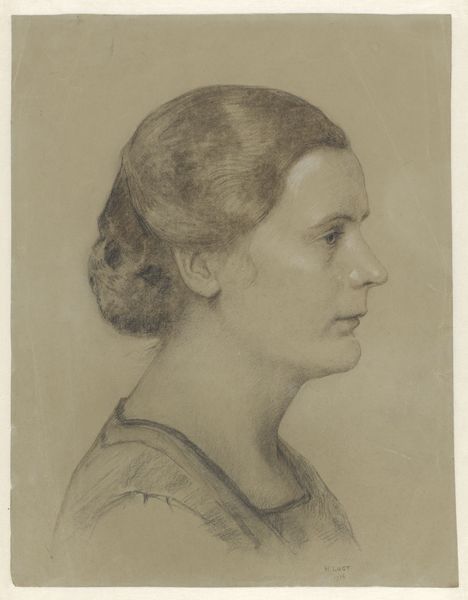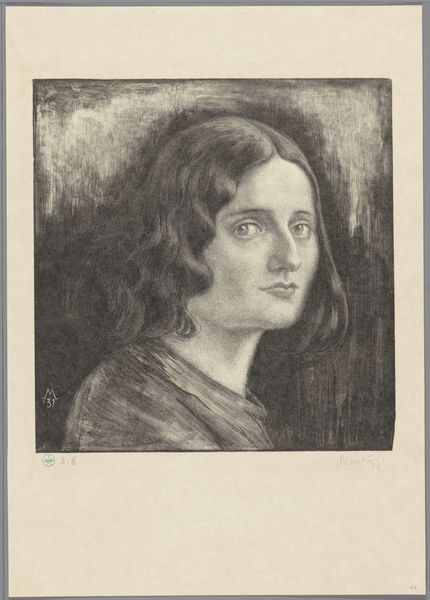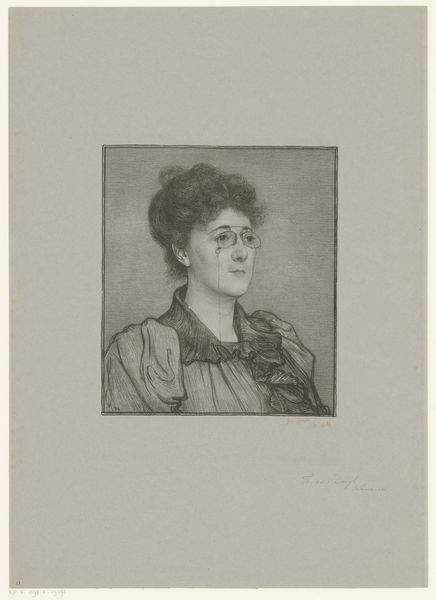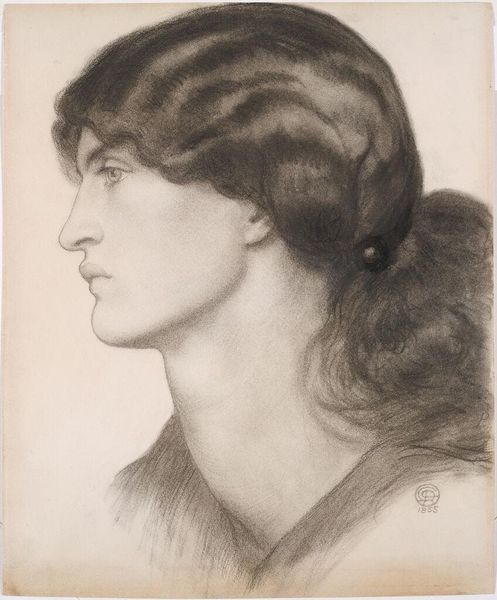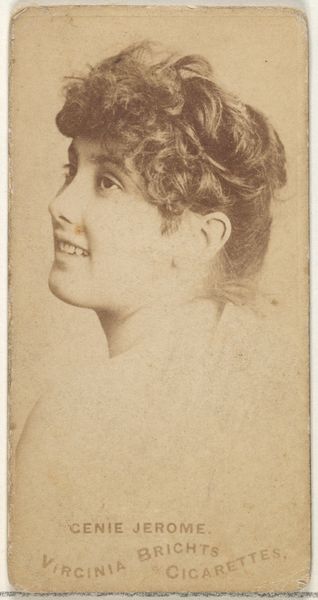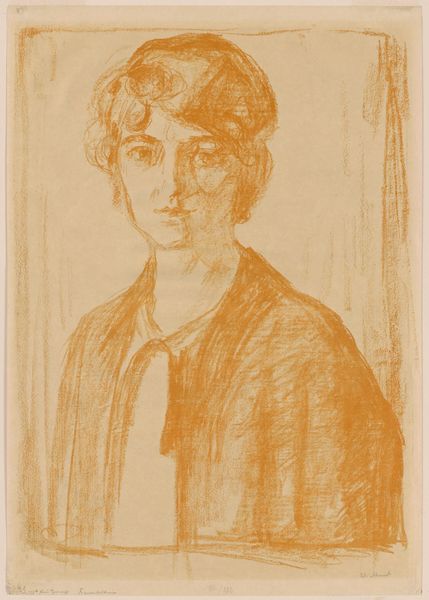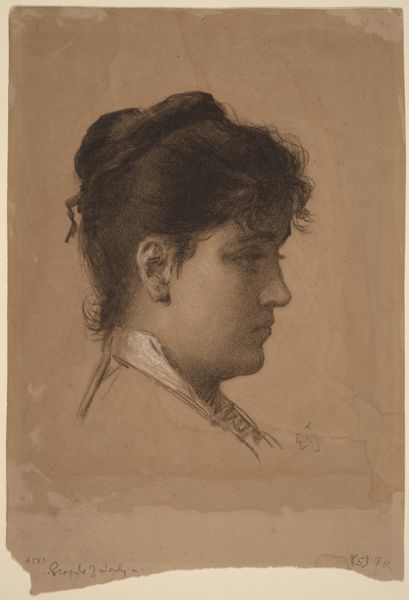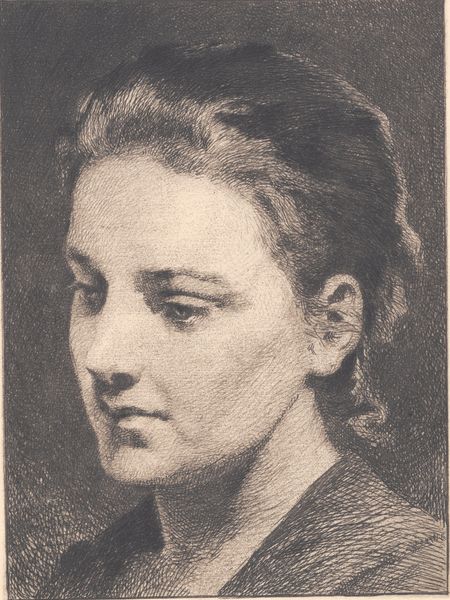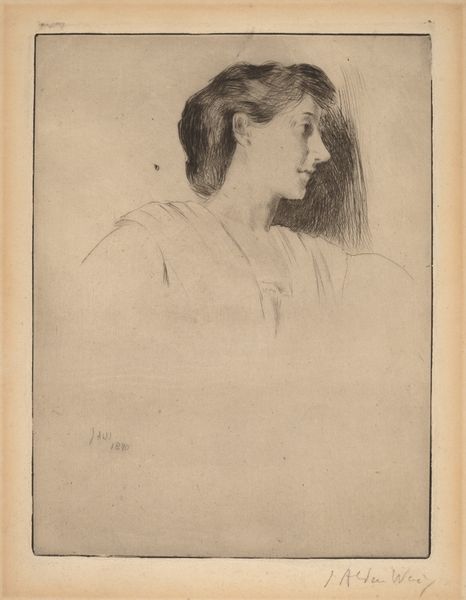
drawing, pencil
#
portrait
#
drawing
#
pencil
#
portrait drawing
#
portrait art
#
modernism
Copyright: Rijks Museum: Open Domain
Editor: This is "Fotoreproductie aan Jenny Kraft," a pencil drawing possibly from 1927 by Jan Toorop, currently housed in the Rijksmuseum. There’s something so gentle and almost photographic about its realism. How do you interpret this work, considering its historical context? Curator: Well, Toorop created this during a period of significant social shifts. Considering the rise of photography, how does this portrait engage with and perhaps even challenge photographic realism as a tool for representation and memorialization of identity in the public eye? The drawing itself is called "Fotoreproductie aan Jenny Kraft" - what could that mean? Editor: That's fascinating, I hadn't considered that interplay between photography and drawing. The title definitely makes it a bit ambiguous. Was it common for artists to explicitly reference photography in their work during that time? Curator: Increasingly so. Artists were grappling with photography's impact on portraiture's traditional role, leading some to explore the medium's unique properties while others sought to distinguish drawing through subjective expression. How might Kraft have responded to the artist making this "fotoreproductie" dedicated to her, during a period where social status might rely on traditional portraiture? Editor: Perhaps it was a modern statement, almost a democratisation of portraiture. Curator: Exactly. Also, who was Jenny Kraft? What was her relationship to Toorop and what kind of statement would this work make within the art world but also their specific social circle? These types of question allows us to dive more into how these social dynamics operate, Editor: I never thought about the power dynamics involved. It adds a completely new layer. I'll definitely keep the cultural landscape in mind next time. Curator: And I will be careful to be aware of the importance of individuals when I research a specific artwork.
Comments
No comments
Be the first to comment and join the conversation on the ultimate creative platform.
